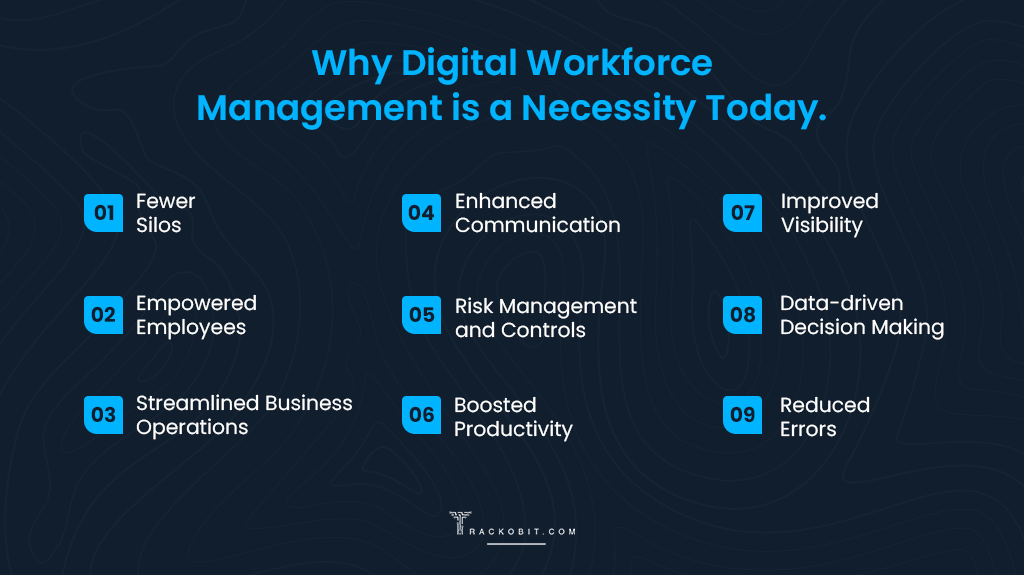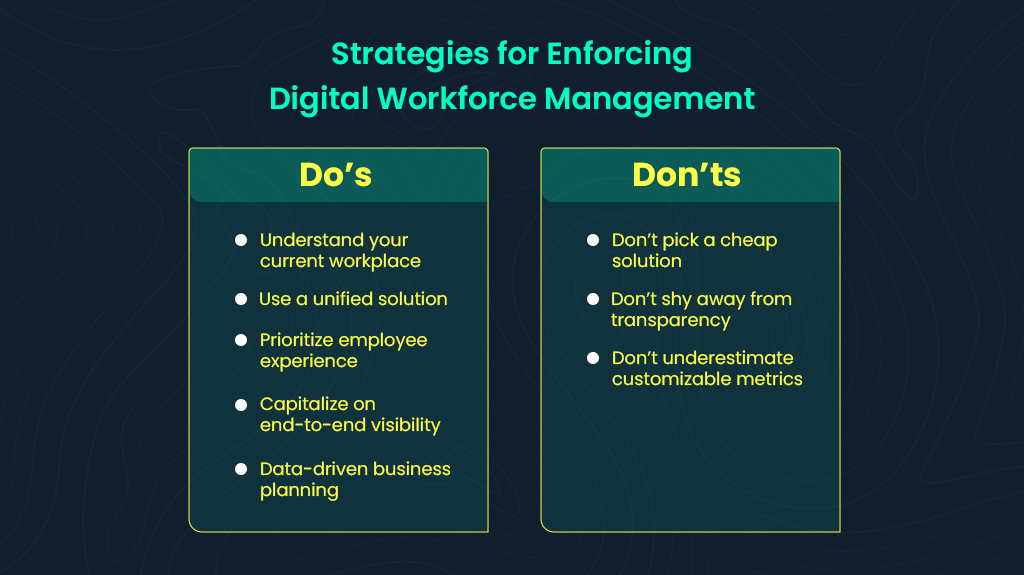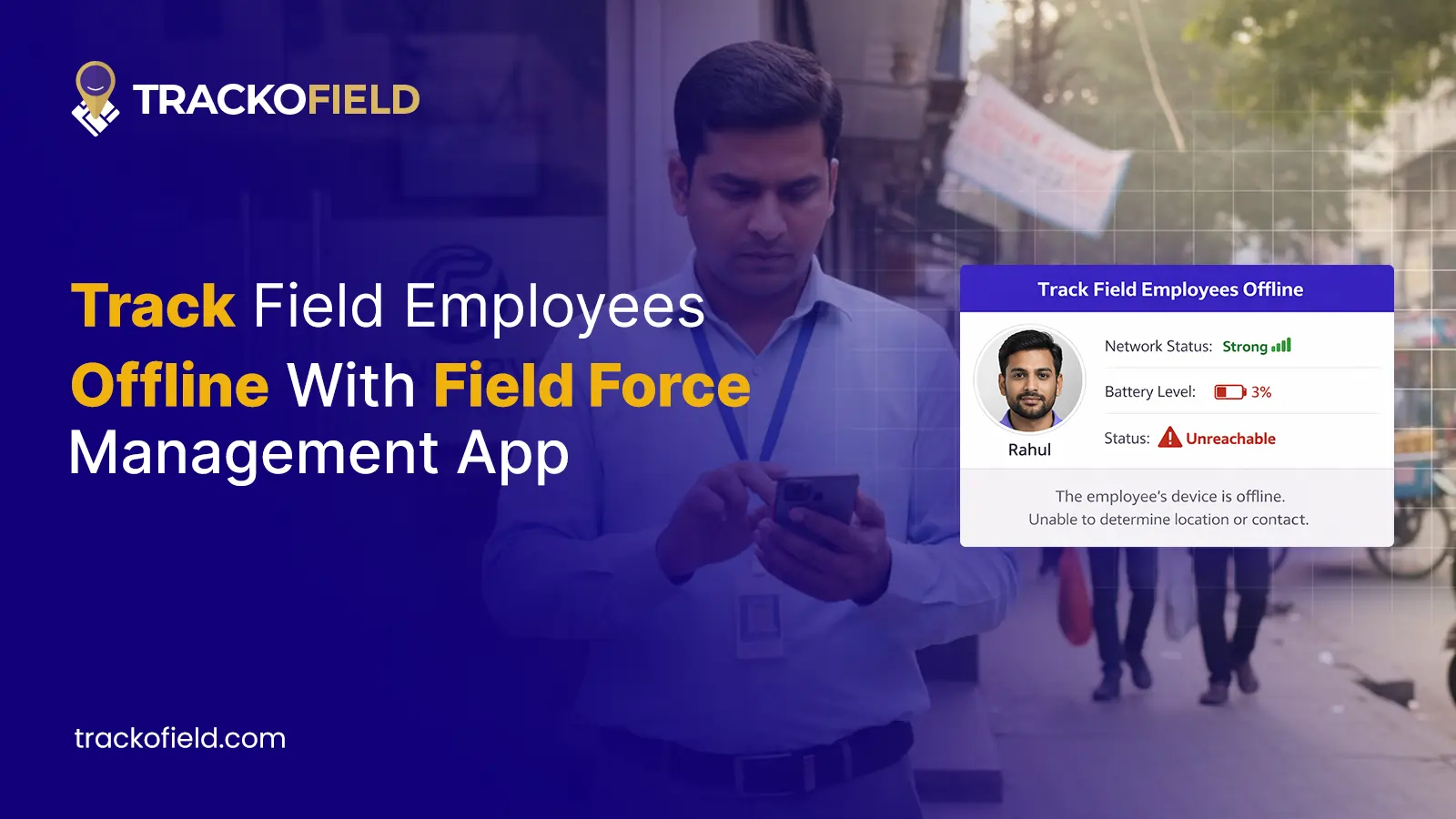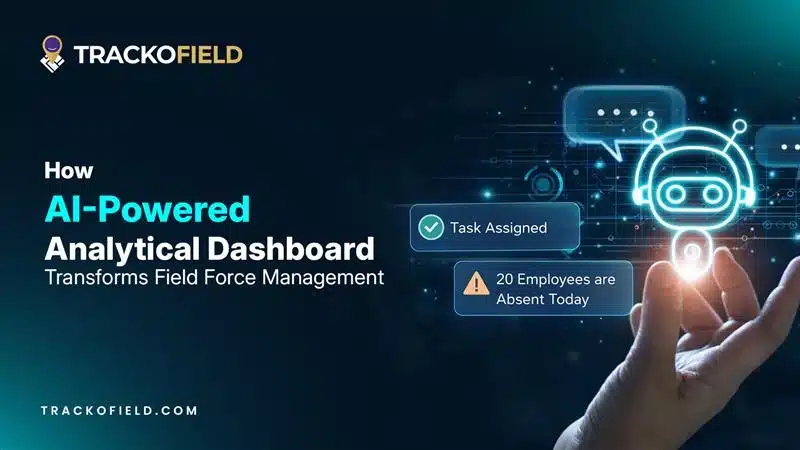-
TrackoBit
Manage commercial vehicles with the new-age Fleet Management Software
TrackoBit -
TrackoField
Streamline your scattered workforce with Field Force Management Software
TrackoField -
Features Resources
-
Blog
Carefully curated articles to update you on industrial trends. -
White Paper
Insightful papers and analysis on essential subject matters. -
Glossary
Explore an alphabetical list of relevant industry terms. -
What’s New
Get TrackoBit & TrackoField monthly updates here. -
Case Study
Explore the cases we solved with our diverse solutions. -
Comparisons
Compare platforms, features, and pricing to find your best fit.
-
About Us
Get to know TrackoBit: our team, ethos, values, and vision. -
Careers
Join the most dynamic cult of coders, creatives and changemakers. -
Tech Support
Learn about our technical support team and services in detail. -
Events
Check out the exhibitions where we left our marks and conquered. -
Contact Us
Connect with us and let us know how we can be of service.
What is Digital Workforce? Examine Its Evolution and Benefits
- Author:Shivani Singh
- Read Time:8 min
- Published:
- Last Update: April 5, 2024
Table of Contents
Toggle
From mundane to meaningful! Learn what digital workforce is and explore its unique potential to turn unorganized and repetitive tasks into streamlined and automated business operations.
Table of Contents
Toggle
Long gone are the days when consumers received responses to their queries in 2 or 3 days. Today, instant service and product delivery is the norm. And for that, businesses have been investing in a digital workforce.
Properly utilizing a digital workforce helps them create a competitive advantage. They reduce resource wastage, focus more on quality-driven tasks, and eliminate the scope of errors for smooth business functioning.
Moreover, the digital workforce improves employees’ productivity with tasks quickly sent via mobile apps. It limits employees’ time scrolling over a huge number of emails and lets them dedicatedly do their work.
What is Digital Workforce Management?
Bringing the workforce on digital platforms such as mobile apps, cloud, or the internet for smoother business operations is known as ‘digital workforce management.’ These digital workforces are driven by the latest technology, advanced software, and big data analysis.
In simple words, digital workforce management is the collaborative synergy of humans and technologies.
It can be implemented in any business set-up where employees are trained to automate their mundane tasks with the help of software solutions. Let’s take an example of a field service-based business that adopts:
- Attendance and leave management software to automatically track their employees’ attendance.
- Expense management software to streamline expense management
- Task management software to smoothly allocate ad-hoc tasks.
- GPS tracker app to enjoy real-time employee tracking and live workforce monitoring.
While moving all the tedious tasks into autopilot mode, replacing papers with detailed documentation, and utilizing a centralized platform for improved communication, digital workforce management ensures simplified workflow. Thus, team members can invest their time in core business activities.
Evolution of Digital Workforce – A Brief Timeline
1. Robotic Process Automation (RPA)
Robotic process automation manages and automates a large amount of repetitive tasks. Most workforce management software leverages RPA to automate activities like employees’ salary calculation, tracking their working hours, and recording their attendance. Business operations will become more optimized, profitable, and flexible with a standardized workflow powered by robotic process automation.
2. Cognitive Computing
Think about the last time you used a customer support bot or gave a command to a digital assistant like Alexa or Siri. All these facilitate interaction with humans in a more personalized manner. Cognitive computing lets these bots understand your questions, offer solutions, and thus make the whole customer service experience smoother than ever.
3. Artificial Intelligence (AI)
AI is used in multiple ways in digital workforce management solutions. For instance, it makes scheduling and shift planning better by analyzing work demand patterns, employee designation, and skill sets. Automated scheduling enhances operational efficiency, saves time, streamlines sentiments, and thus increases employee satisfaction.
4. Machine Learning (ML)
Machine learning uses real-time employee monitoring and predictive analytics to emphasize strong workforce management. Let’s understand the technology role with an example of a field company that wants to detect patterns that lead to employee attrition. With the machine learning tools in place, field companies can learn about workloads, compensation, employee experience, manager relations, time off, etc., probable reasons for employee attrition. Therein, they get the ability to predict future outcomes before they occur and drive their efforts to reduce the same.
Benefits of Digital Workforce Management – Turbocharge Your Workforce Capabilities
Digital workforce management brings benefits in multiple ways by automating the activities that usually require some form of human involvement.

1. Fewer Silos
Silos are commonly found when employees are not in a cohesive working environment. However, digital workforce management can eliminate it by serving a centralized platform. With the unified solution, employees can self-allocate tasks after analyzing their team members’ availability. They participate in organizational activities with a new sense of ownership and it ultimately helps in facilitating workforce productivity.
2. Enhanced Communication
Digital workforce management helps maintain a single source of truth from where automated notifications and alerts are sent to different users. All team members can communicate about team meetings, scheduled appointments, and overall business operations on the same platform. This streamlines communication and eliminates the likelihood of forgetfulness among all employees.
3. Improved Visibility
Managers get real-time insight into various aspects of employee performance, i.e., their working hours, clock in/out, task status, etc. Armed with this information, they can spot loopholes and take appropriate measures. For instance, if an important task is in the pipeline and is taking more time than stipulated, managers would step up, evaluate the challenges, and take necessary steps to drive continuous progress. From spotting the anomalies to assessing the challenges and making insightful decisions – software-driven workforce management enables it all.
4. Empowered Employees
Digital workforce management software brings employees a complete set of toolkits on the same platform to quickly manage their tasks. Instead of relying on different means, dozens of tools, and manual methods, they can simply access their devices, unlock their tasks, and complete them dedicatedly. Consequently, it makes employees feel more confident and empowered in their work.
5. Risk Management and Controls
Everything from employees’ attendance to their productivity status is stored in the comprehensive platform with limited access, so the chance of stealing and manipulating the data is minimal. Also, companies can monitor how the data is used for smooth operations. For instance, companies can use attendance data to detect absenteeism rates or to calculate employees’ payouts. It’s all in the company’s control of how they want to convert the data.
6. Insightful Decision Making
Getting real-time insights into employees’ performance, locations, expenses, etc., helps companies plan, decide, and manage their resources effectively. For instance, field service-based businesses with digital workforce management can assess:
- Where their technicians are
- How long they take to complete a task
- What distance they have covered
Thus, they ensure insightful decision-making and achieve optimized workflow.
7. Streamlined Business Operations
Any changes in digital workforce management systems are displayed on each employee’s device. Simply put, managers can swap shifts for employees on their web portals and employees can view the same on their mobile devices. So, it allows for improved synchronization, minimized disruptions, and better workflow.
8. Boosted Productivity
To minimize employee downtime and boost productivity, businesses must deploy the right number of workers to the right jobs. However, this is not possible by using basic spreadsheets. Digital workforce management can alleviate age-old scheduling headaches. It offers various solutions that ensure detailed reports and analytics for better roster optimization. This results in enhanced productivity all over the organization.
9. Reduced Errors
The digital workforce automatically processes and stores accurate data on all aspects of business operations. Thus, it reduces the scope of errors while managers record data manually. It also covers the time managers consumed in detecting and resolving those issues. With such capabilities, businesses can invest more time in improving their workflow.
Enforcing Digital Workforce Management Strategy- Do’s & Don’ts
Shifting from conventional business workforce management to digital workforce management needs systematic strategies and their execution. To help you get started, we have curated a list of do’s and don’ts for enabling digital workforce management.

Do’s
1. Understand your current workplace
A thorough analysis of your existing business processes helps you better understand what aligns well with your team and their needs. Accordingly, the strategic implementation of modern tools and solutions helps in the smooth adaptation of the digital workforce model.
2. Use a unified solution
Instead of using different tools to cater to your organization’s needs, choose a unified solution where all data is stored and presented as understandable metrics, KPIs, charts, and insights, fostering better decision-making. An all-encompassing solution also ensures smooth coordination among employees, managers, sales, accounts, human resources, and other team members for a better flow of information.
3. Prioritize employee experience
Digital workforce management involves a one-on-one interaction of employees with technology. So, you must get a solution that offers them a seamless experience. It is important to learn how they are moving ahead with different tools’ features and functionalities to run their tasks smoothly. If they find any obstacles in between, you must organize some training programs to empower your employees.
4. Capitalize on End-to-end Visibility
Educate old or technologically sober employees about the pros of data transparency. Visibility into their respective KRAs like task vs achievement, live task monitoring, attendance data, the expense incurred, etc. – reduces the scope of miscommunication or overlapping communication among employees.
5. Data-driven Business Planning
You need to innovate at every step by extracting the data on employees’ performance, payouts given, expenses incurred, orders placed, tasks completed, etc. This will let you move a few steps ahead of all your competitors. With predictive analysis, you can better monitor your flaws and turn them into futuristic opportunities and growth.
Don’ts
1. Don’t Pick a Cheap Solution
If you don’t want to compromise on features, interface, or the quality of the solution then investing in a cheap and passable digital workforce management software is not the right option. You could hurt the company’s revenue and spoil your employees’ overall experience.
2. Don’t Shy Away from Transparency
Trust is a fundamental building block not just in relationships but in the workplace also. A company with transparent work culture leads to higher employee satisfaction, improved productivity, and organized workflow. So, don’t prefer any software that does not offer streamlined communication.
3. Don’t Underestimate Customizable Solutions
The success of your workforce depends on how frequently you analyze metrics and KPIs. However, not all vendors provide customizable reports in their software solutions. This limits you from fetching insights the way you want. Custom reports, use-case-based alerts, and data analysis are possible with custom offerings only.
Conclusion!
After learning about the huge potential of digital workforce management, don’t you want to look for ways to initiate digital workforce management?
If yes, choose an all-inclusive solution that holds various modules within and can be tailored to your organization’s unique needs. Wondering what it could be? Well, it’s TrackoField!
The software lets you embark on a journey of meeting progressive milestones with automation on the go. Its turbocharged capabilities prove to be a guiding power for your business that lets it drive against challenges. To embrace the digital workforce transformation, sign up to use TrackoField for free.
FAQs
-
What should be the strategies for digital workforce management?
Understand the needs of your current workplace: Use a unified solution Prioritize your employee experience Track task’ progress Make data-based decisions.
-
What are the benefits of using digital workforce management?
Here is an exceptional range of benefits you will get after utilizing digital workforce management such as; Fewer silos Enhanced communication Reduced errors Enhanced communication Risk management
Shivani is a Content Specialist working for TrackoField. She comes with years of experience writing, editing and reviewing content for software products. Her underlining expertise in SaaS especially H... Read More
Related Blogs
-

How to Track Field Employees Offline With Field Force Management Software
Mudit Chhikara February 11, 2026Use field force management software to track field employees offline and ensure managers never lose visibility of on-ground operations.
-

How AI-Powered Field Force Management Simplifies Field Operations With Analytical Dashboard
Mudit Chhikara February 10, 2026How AI-powered field force management enhances field operations using AI manager bot and analytical dashboard.
-

Grameen Credit Score and the Quiet Redesign of Rural Lending
Pulkit Jain February 9, 2026Rural lending doesn’t usually go wrong at approval. It drifts when what’s happening on the ground stops being visible.
-

How NBFCs Can Reduce NPAs Using LMS + LOS + FFA Integration
Mudit Chhikara January 30, 2026Here’s how NBFCs can smartly integrate LOS, LMS, and FFA software to reduce NPAs and ensure seamless field operations.

Subscribe for weekly strategies to boost field team productivity.
Your inbox awaits a welcome email. Stay tuned for the latest blog updates & expert insights.
"While you're here, dive into some more reads or grab quick bites from our social platforms!"Stay Updated on tech, telematics and mobility. Don't miss out on the latest in the industry.
We use cookies to enhance and personalize your browsing experience. By continuing to use our website, you agree to our Privacy Policy.





































